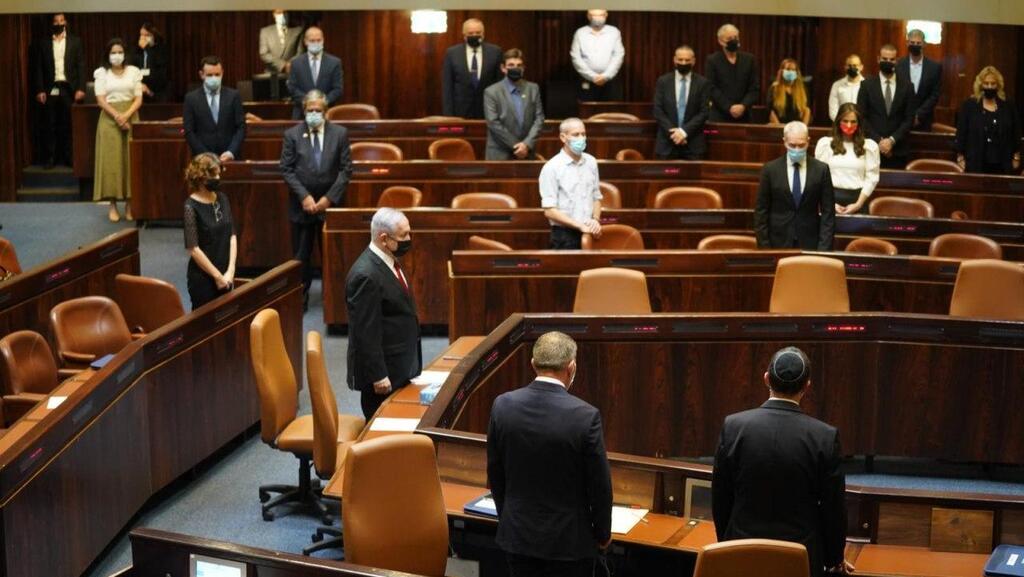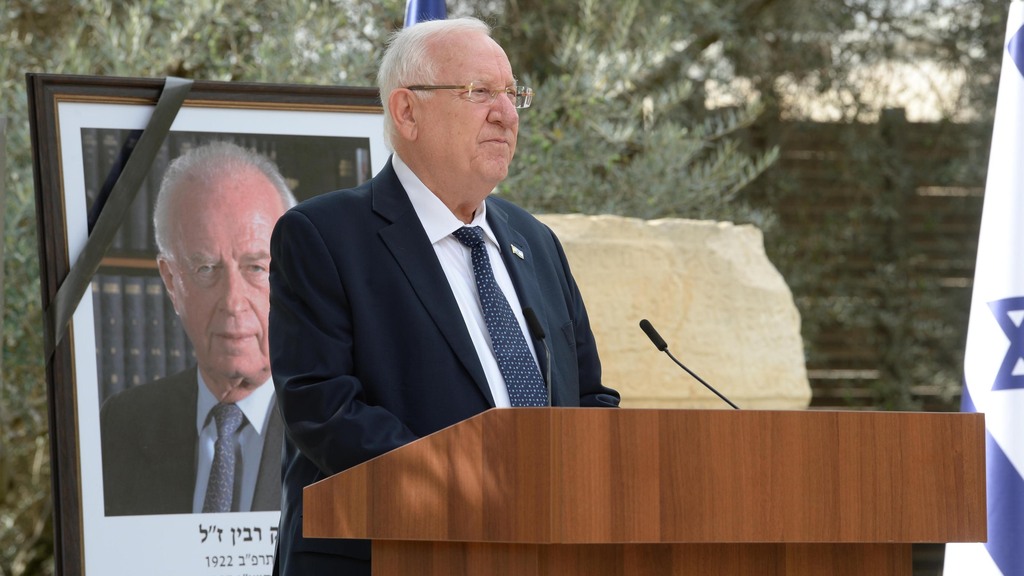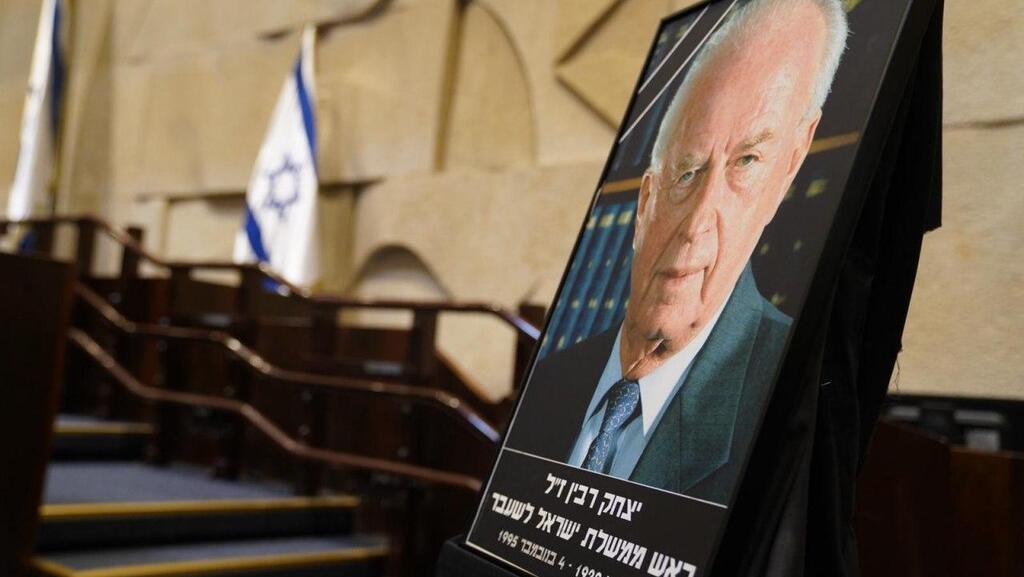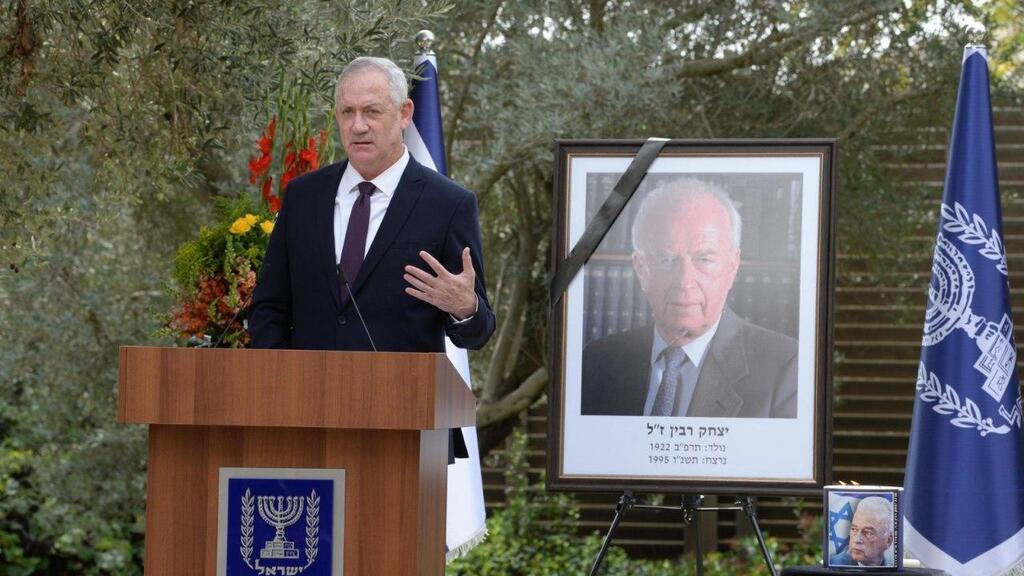Prime Minister Benjamin Netanyahu on Thursday slammed political 'incitement' during a speech at a special Knesset memorial marking the 25th anniversary of the Prime Minister Yitzhak Rabin's assassination.
A host of memorial services, significantly scaled back this year due to coronavirus, were to be held across the country marking the anniversary of the political murder that rocked Israel back in 1995.
4 View gallery


MKs observe a minute of silence during a memorial in the Knesset
(Photo: Knesset Spokesperson)
A special event was held in the Knesset plenum, where a host of prominent politicians, including Netanyahu, gave passionate speeches. During his speech, the prime minister claimed there is "explicit incitement" that calls to assassinate him and his family.
"As long as the social networks allow freedom of expression for those whose voices are silenced in the media, they make an important contribution to democracy," he said. "But even on social networks, we must make sure not to cross red lines, there must be no incitement to murder and violence from any side."
A state memorial service was also held in the moring hours at President's Residence in Jerusalem, attended by a number of high-profile officials including President Reuven Rivlin and Defense Minister Benny Gantz.
"The assassination of Prime Minister Yitzhak Rabin was a political assassination," said Rivlin during the ceremony. "The despicable assassin of the prime minister thought he had legitimacy to eliminate the existence of sharp and deep political disagreement.
"I was on the opposite side of the political debate. Like me there were many others. And most of us, convinced to the bone of the righteousness of our way, could not imagine for a moment the horror scenario we would come to in this ideological struggle."
Earlier, Israel Defense Forces Chief of Staff Lt.-Gen. Aviv Kochavi sent a letter to the soldiers, honoring Rabin. "Turmoil and the sense of grief reached every house in the country following the murder," Kochavi said.
Rabin, one of the key architects of the Oslo Accords was murdered on November 4, 1995, after a rally at the Kings of Israel Square in Tel Aviv, which was renamed as Rabin Square after his death.
He was shot dead by Yigal Amir, a far-right radical opposing the treaty with the Palestinians.
While millions came out in support of the agreement, others opposed any sort of a deal with the Palestine Liberation Organization, responsible for a number of terror attacks at the time.
In 1994, Rabin's work towards Israeli-Palestinian peace earned him the Nobel Peace Prize, which he shared with PLO chief Yassir Arafat and Shimon Perez, then-Foreign Affairs Minister of Israel.
Rabin's death, which came at one of the pivotal moments in the Israeli-Palestinian peace process, sent shockwaves throughout both Israel and the world, with hundreds of thousands joining the mourning.
World leaders, including U.S. President Bill Clinton, attended his state funeral at Mount Herzl in Jerusalem.
First published: 13:06, 10.29.20




